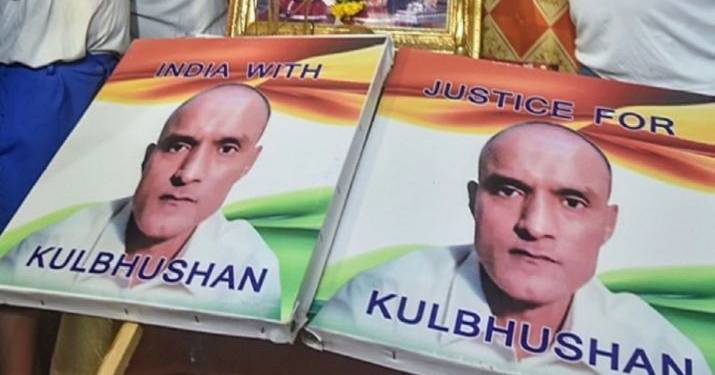In what can be described as the culmination of yet another diplomatic victory for India over Pakistan, an Indian official met Kulbhushan Jadhav yesterday, after Pakistan granted the consular access. This is a major turn around given that Pakistan was desperate to hang Jadhav without providing him any legal help.
Kulbhushan Jadhav had been arrested by the Pakistani security forces on March 2016. Jadhav was kidnapped from Iran, where he had business interests after getting retired from the Navy. However, out of the urge to satisfy the jingoistic nationalism of its citizenry, a Pakistani military court sentenced Jadhav to death on charges of espionage and terrorism.
India’s Deputy High Commissioner in Islamabad, Gaurav Ahluwalia met Kulbhushan Jadhav ”in line with the International Court of Justice judgement” that was pronounced around two and a half months ago. Ahluwalia met Jadhav at a sub-jail after Pakistan granted consular access to him. Before meeting Jadhav, Ahluwalia is reported to have met Pakistan Foreign Office spokesperson Mohammad Faisal at the foreign ministry, . India had demanded ”immediate, effective and unhindered” access.
As per Livemint, India was in constant touch with Islamabad through diplomatic channels. A couple of days ago, Foreign Office Spokesman Mohammad Faisal announced by a Twitter post that consular access would be provided to Jadhav on 2nd September ”in line with Vienna Convention on Consular relations, ICJ judgement & the laws of Pakistan”. However, it is still not clear if the consular access to Jadhav was “unhindered”, i.e. without the presence of Pakistani officials.
India has managed to score a massive diplomatic victory in this case. While Pakistan was desperate to execute Kulbhushan Jadhav in a bid to humiliate India, the latter had other plans. After a Pakistani military court had sentenced the retired Indian Naval officer to death in a judgment dated April 10, 2017, India showed Pakistan its place by taking the matter to the International Court of Justice and getting a stay on the death sentence to vide an ICJ Order dated May 9, 2017. However, the biggest development, in this case, took place only in the month of July this year when the ICJ granted India consular access to Kulbhushan Jadhav in a 15-1 verdict. The court also said that Jadhav’s death sentence should remain suspended until Pakistan reviews and reconsiders the conviction/sentence in light of Pakistan’s breach of Art 36(1) i.e. denial of consular access and notification.
It’s due to India’s steadfast opposition to the death sentence passed in the Jadhav’s case that today Pakistan felt compelled to grant consular access to the retired naval officer. Pakistan was compelled to adhere to the ICJ judgment and grant consular access concerning the fragile state of its economy. Given the dire state its economy is in, disobeying the ICJ verdict is the last thing Pakistan would have wanted. It is also important to mention here that senior Advocate, Harish Salve, India’s lead counsel in the Kulbhushan Jadhav case, had also made it clear that India would consider getting sanctions against Pakistan in the UN Security Council. Pakistan’s disobeying of the ICJ verdict would have also unnerved the State, therefore, had to change its stance in this case.
























